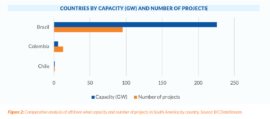 CERC Declines Trading Margin Plea From SECI In BESS Deal
CERC Declines Trading Margin Plea From SECI In BESS Deal In an interesting take on what constitutes fair margins, the Central Electricity Regulatory Commission (CERC) considered a plea by SECI on an additional margin of Rs. 0.07/kWh for facilitating the sale/ purchase, scheduling, accounting, charging, and discharging of BESS for Grid Ancillary Services (150 MW) portion through IDAM/ RTM/TAM/Bilateral mode on behalf of the National Load Despatch Centre (NLDC)/Grid Controller of India. SECI had also petitioned on the inadvertent error in the previous order dated 16.05.2024 along with condonation of delay of 11 days. A final plea was for the trading margin of 0.5% of capacity charges being payable to SECI by NLDC/ Grid Controller irrespective of any utilization of BESS for ancillary services by NLDC/Grid Controller.
The Project
The project in question is the 500 MW/1000 MWh (2 hours storage) standalone ISTS connected BESS pilot project at 400/220 kV Fatehgarh-III (Rajasthan) substation of Northern Region. The developer in this case is JSW Renew Energy, a subsidiary of JSW Energy at a tariff of INR 10,83,500/MW/Month.
SECI’s Contention
SECI’s contention was that for a 150 MW capacity from the project, it has been tied up with Gujarat utilities where the Gujarat Discoms arrange for charging and discharging of the BESS capacity. There is no involvement of an intermediary for charging and discharging of BESS; hence, there is no trading margin of Rs 0.07/kWh.
The services so sought are required to be paid by the NLDC in accordance with the trading margin of Rs. 0.07/kWh as provided in the ‘Guidelines for Procurement and Utilization of BESS as part of Generation, Transmission, and Distribution Assets, along with Ancillary Services’ dated 10.03.2022 and in the various meetings held with the Ministry of Power.
There was no dispute raised by NLDC in regard to the obligation to pay the trading margin for such additional services of the intermediary trader in the procurement and/or sale of electricity for charging and discharging of the BESS during the proceedings and as duly recorded in the pleadings of the Petition No. 249/MP/2023.
The interpretation of the stipulation contained in the guidelines and bidding documents and the minutes of the meetings with the Ministry of Power in regard to the trading margin of 0.5% of the capacity charges and Rs. 0.07/kWh being towards the same set of services and to be considered as cumulative as it would lead to double payment of trading margin for the same quantum of power is wrong. The margin of 0.5%, which is with reference to the capacity charges, is for a distinct and different purpose and the additional trading margin of Rs. 0.07/kWh is for a completely distinct and different purpose. Both services cannot be considered as part of the same services to be rendered by SECI in regard to BESS.
The quantum of trading margin is thus restricted to the purchase and sale of power as and when undertaken by SECI and would not arise at all if there was no eventuality of procuring such power from outside or sale of any power to outside parties for charging and discharging of BESS for providing ancillary services. Accordingly, it will not be appropriate to hold that there is any double payment of trading margin for the same quantum of power as stated in the order dated 16.05.2024.
CERC Order
In its final order on November 18, while condoning the delay in filing the review petition, as well as correction of the inadvertent error in the previous order, the CERC bench disagreed with SECI’s contention on the key issue of the 7 paise trading margin.
The Commission notes that though the MoP guidelines do not envisage the responsibility for SECI to charge and discharge the ancillary potion of the BESS capacity, providing an additional trading margin of Rs. 0.07/kwh would result in an additional financial burden on the statutory DSM and Ancillary Services Pool Account and also tantamount to double payment of trading margin for the same quantum of power. In fact, to avoid such instances of double payment, the Central Electricity Regulatory Commission (Procedure, Terms, and Conditions for grant of trading licence and other related matters) Regulations, 2020 (“Trading Regulations, 2020”) provided in Regulation 8(2) as under:
(2) The trading margin specified under these regulations shall be the cumulative value of the trading margin charged by all the traders involved in the chain of transactions between the generator and the ultimate buyer, that is to say, trading margin in case of multiple trader-to-trader transactions and shall not exceed the ceiling of trading margin specified under these regulations.
The Commission also noted that the Commission fixes only the ceiling of trading margin, and within the ceiling the contracting parties, are expected to make mutual agreement for the trading margin to be paid/received, subject to the provisions of the Trading Regulations, 2020. The instant case being a pilot project, it would be in the interest of the power sector to optimise cost wherever possible. In view of the above discussion and in line with Regulations 8(2) of the Trading Regulations, 2020, the Commission directed that the quantum of power earmarked for Ancillary Services, Respondent No. 1(SECI) shall be entitled to charge trading margin such that the cumulative value of the trading margin (i.e. the trading margin of 0.5% of the Capacity Charge plus the additional trading margin towards charging and discharging of BESS) should not exceed Rs. 0.07/kWh.
Further, in case charging of power is arranged through ancillary services by the Petitioner, no additional trading margin (over and above the 0.5% of the Capacity Charge) shall be payable to the Respondent No.1 (SECI).
CERC added that SECI has failed to point out the discovery of new and important matter or evidence, any mistake or error apparent, or any other sufficient reason which may at any time be corrected by the Commission either of its own motion or on the application of any of the parties. SECI has also failed to point out any reason for invocation of Regulation 52 of the CERC (Conduct of Business) Regulations, 2003.






























